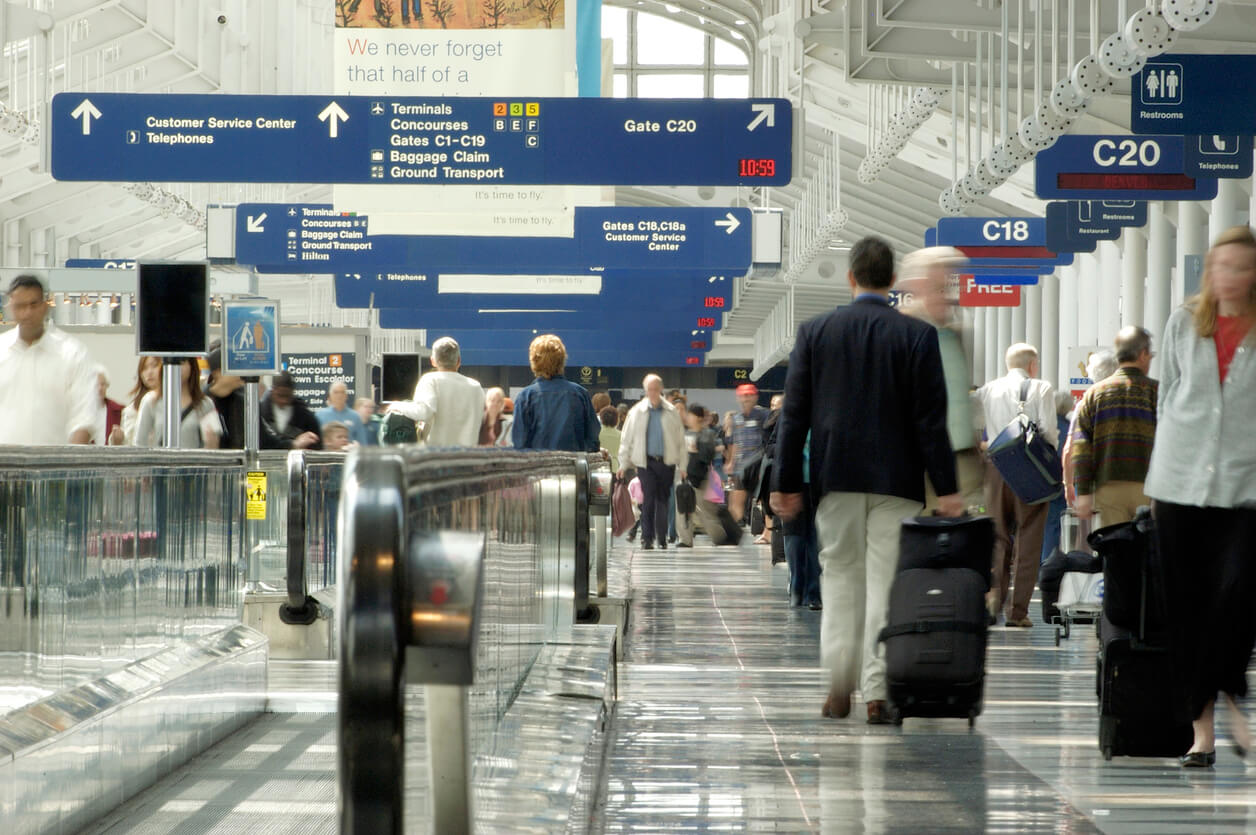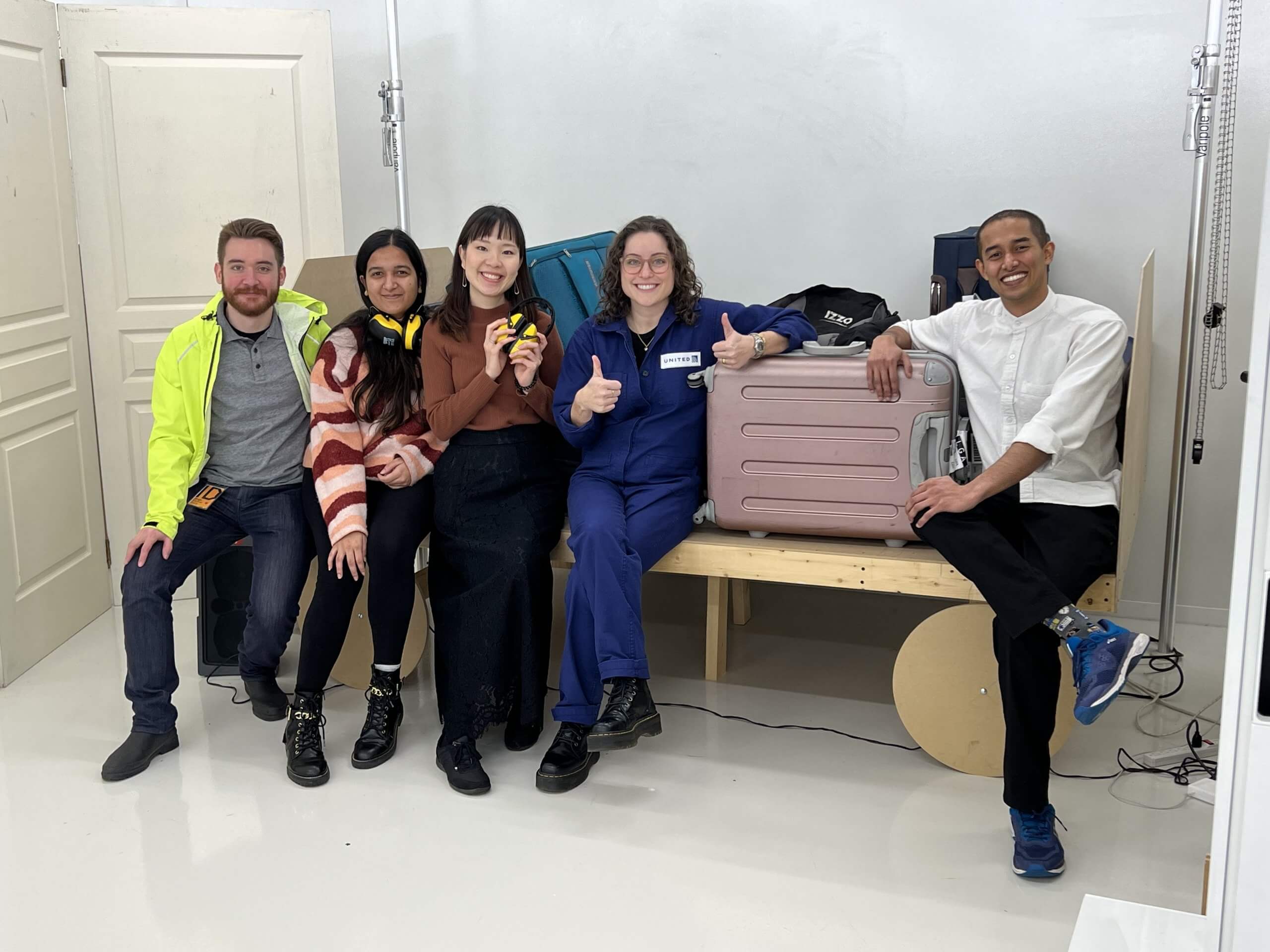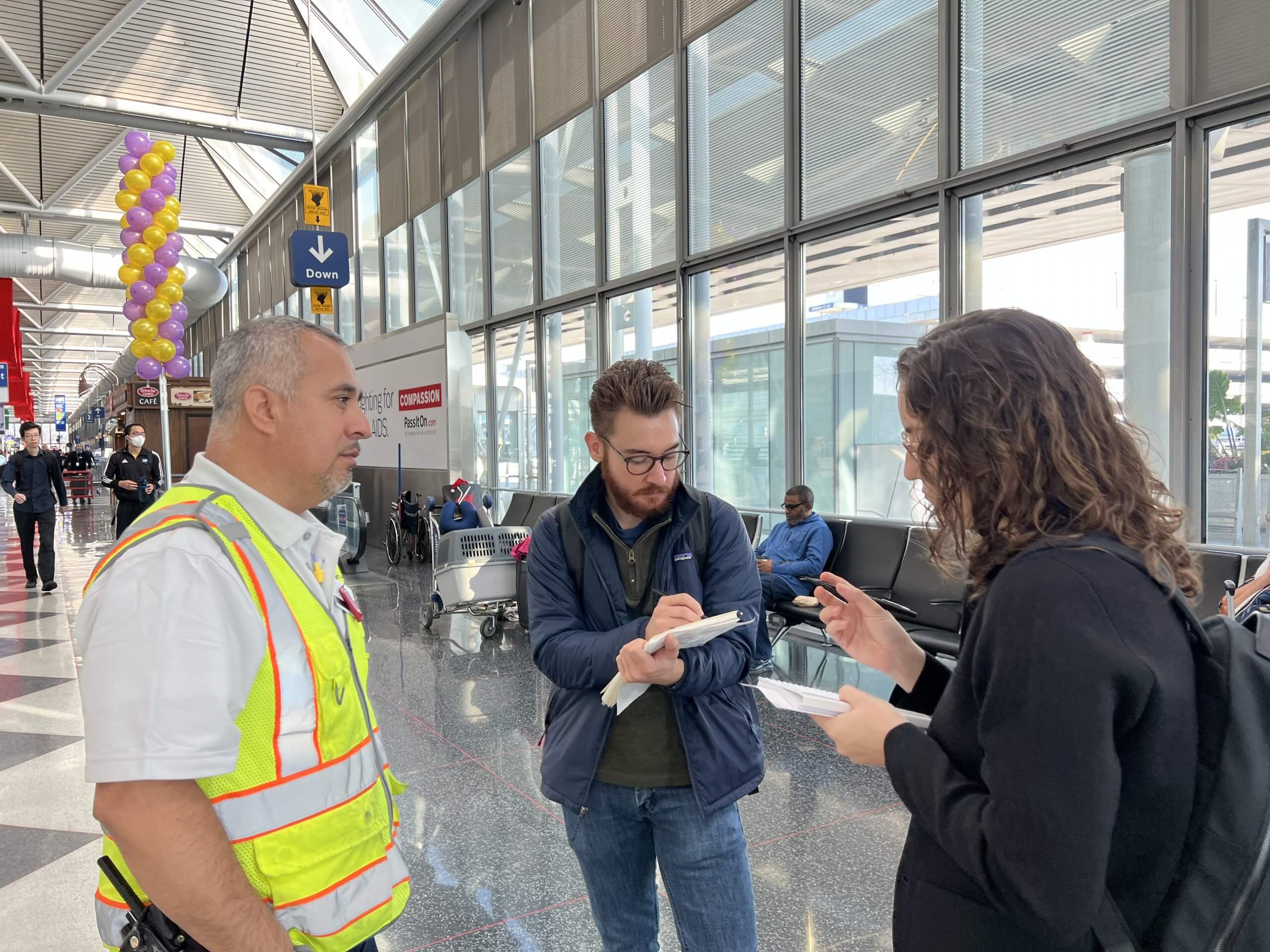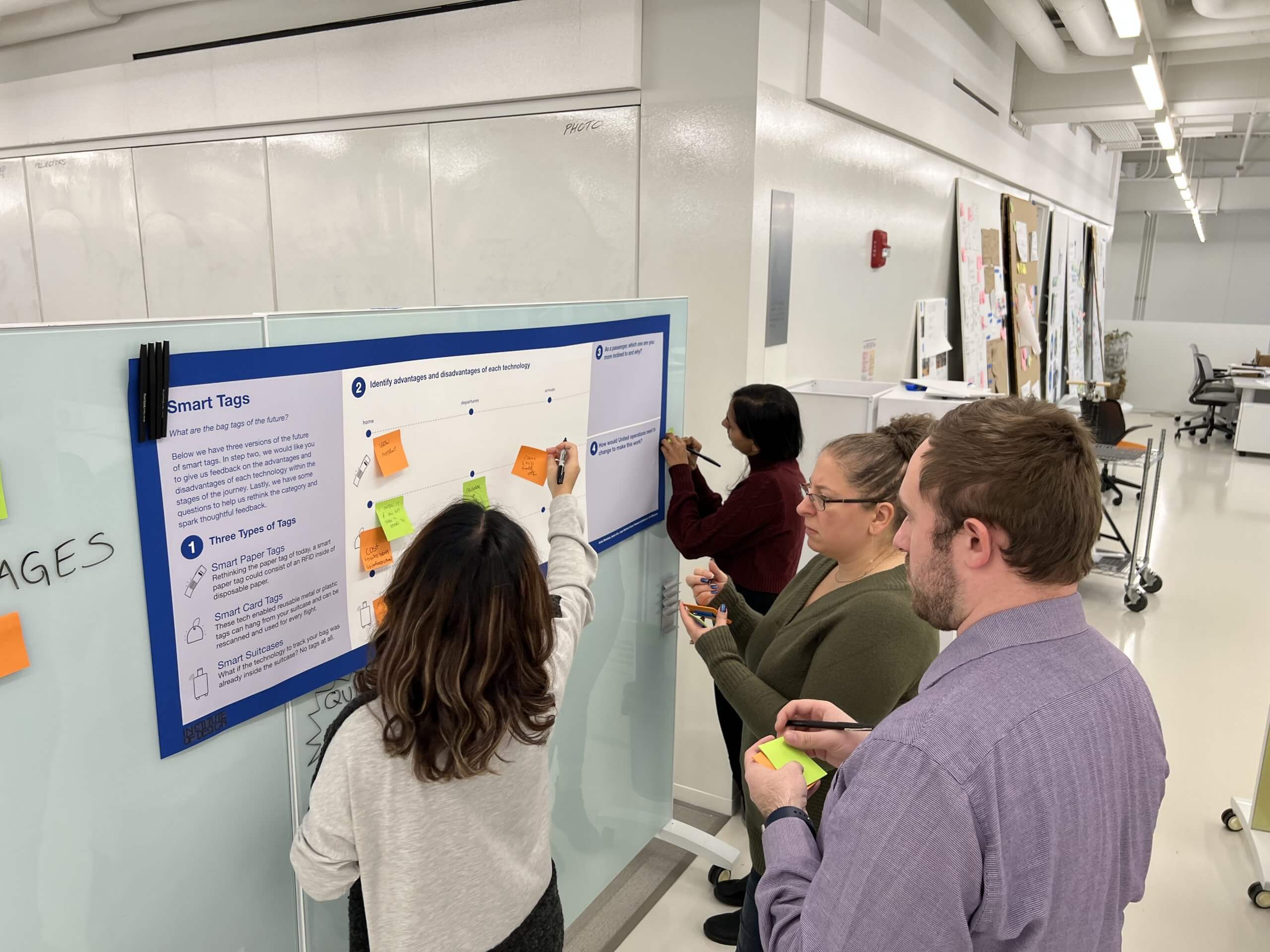
Many frequent travelers avoid ever checking bags. Doing so racks up fees and, perhaps more importantly, risks loss.
But as COVID travel restrictions loosen and the demand for travel increases, airlines have a new opportunity to face a shortage in baggage handlers a well as the ongoing issue of lost bags.

Jorge Martínez Arana (MDes + MBA 2023), Urvi Bidasaria (MDes 2023), Ayaka Uriu (MDes 2023), Rosanna Lederhausen (MDes + MBA 2022), and Aman Bhardwaj (MDes 2023)
Partnering with ID’s Innovation Methods class led by Jeremy Alexis, United Airlines sought technology-led, innovative solutions that would improve their operations. Following rounds of research and multiple iterations, the ID team developed a solution to streamline luggage operations.
Using design frameworks such as Terrains & Territories, Orthodoxies, and the Abstraction Ladder, the team mapped out the different spaces where innovation could be effective. Seeing that current baggage operations are scattered, the team identified various touchpoints where technology can intervene to streamline operations.
Shadowing a baggage operations manager and three other employees in the baggage department, the team found that personnel shortage is a major roadblock to keeping operations smooth in this post-pandemic travel demands. Moreover, the lack of technology infrastructure causes issues such as paper tags that fall off and confusion on where baggage should be placed.
There were also issues around information overload, including having to deal with different standard operating procedures for different airports and flights, as well as special cases (like a flight full of hockey players—resulting in limited baggage space in airplanes), all of which employees have to consider when making split-second decisions.
After collecting insights from meetings with the United team and their visit to O’Hare, the team tested their hypothesis.

Students at ID conducted field research at Chicago’s O’Hare International Airport, named the sixth busiest airport in the world by USA Today in 2019.
Introducing a Living Lab

At the end of the 14-week project, the ID team built a Living Lab at Kaplan to showcase their solutions to their airline partners.
A Living Lab is an open innovation tool that facilitates the exchange of valuable feedback and new ideas from stakeholders. Utilizing a Living Lab enables the airline to forward the futuristic technology into a feasible option with evidence and confidence.
The Living Labs demonstrate how the airline can create traceable, adaptive systems for baggage through diverse customer touchpoints, with the goal of imagining new futures and enabling the airline staff to envision and be inspired by new types of human-centered ideas for baggage-related problems.
The team’s solutions included:
- At-Home Baggage Check-In: Improving the passenger experience through a quicker check-in process which starts at home.
- Smart Tags: RFID embedded disposable luggage tags and tracking-enabled suitcases can reduce lost bags.
- Baggage Assistive Guidance System: Technology that uses big data to point employees to the direction of where the bags should go via AI goggles.
Baggage Assistive Guidance System
Students present their Living Lab and how United might leverage data to enhance baggage handling and produce a seamless system.
ID’s partners at United were incredibly impressed with the work and invited the ID team to build their Living Lab at the airline headquarters to further test and develop the prototypes.
The solutions imagined by ID students have the potential to be adopted by other airlines and streamline luggage operations all over the world.